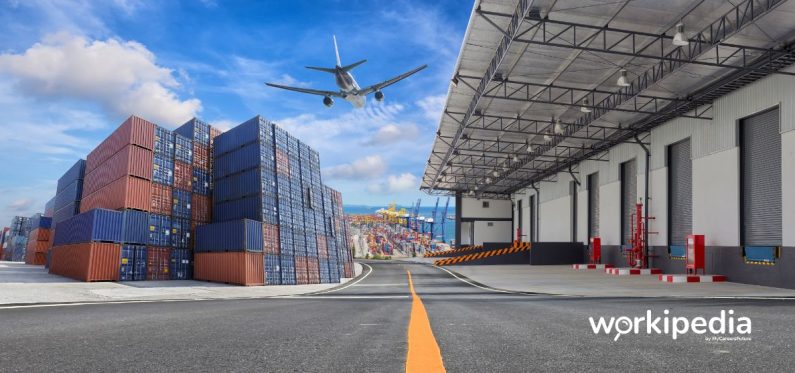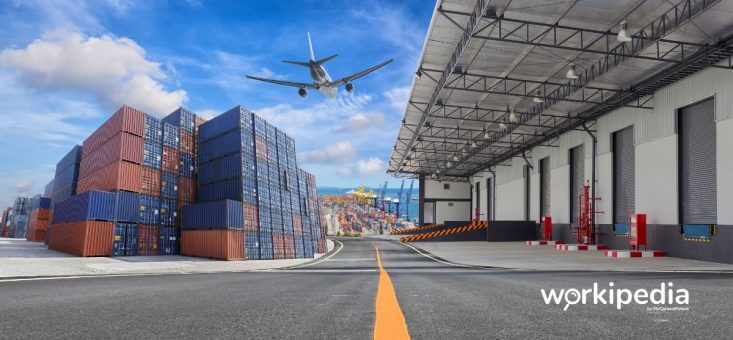Even pre-pandemic, the logistics industry had already been observing significant digital transformation as it explored the impact and potential of advanced manufacturing, also known as Industry 4.0 technology solutions. Digital transformation accelerates the automation of repetitive tasks and processes, which in turn helps create more value-adding jobs and tasks for employees.
However, digital transformation isn’t the only thing that’s shaking up the logistics landscape. Rising global demands and evolving customer expectations have given rise to the e-commerce revolution, resulting in warehouses grappling with space issues and a lack of skilled manpower.
With all the challenges and supply chain disruptions, business leaders and organisations would need to be more agile to enhance their supply chain resilience.
So where are the opportunities now and what should you do to prepare yourself for the future of this industry?
Increasing job opportunities in supply chain and logistics
Singapore is a key node in the supply chain networks in Southeast Asia and globally. Owing to its thriving advanced manufacturing ecosystems and excellent infrastructure, several companies have chosen Singapore to house their innovation hubs, centres of excellence and business operations.
Several employers are currently expanding their workforce to meet increasing consumer demand and drive digital transformation simultaneously. This would require them to hire talent with varying experience levels, professional backgrounds and specialisations.
There are over 100,000 jobs available on MyCareersFuture. Apply for your next job role here!
Manufacturing and supply chain jobs such as logistics operations, warehouse administration and planning, procurement, as well as customer and account management continue to be in demand. Companies are focusing on critical business strategies to expand and strengthen their processes, to provide positive experiences for their clients.
Even though there is an abundance of job opportunities, the talent pool in Singapore remains small. The negative perception of laborious and grimy work environments has deterred some local talent from pursuing a career in logistics. We have also observed that Singaporeans with relevant experience are often drawn to more prolific and prestigious industries such as banking and financial services, technology, and marketing instead. Although many employers know that it’s challenging to attract and hire locals, they still prioritise Singapore citizens and permanent residents for any open job opportunities.
Jobseekers have the upper hand in salary negotiation
Employee-employer dynamics have shifted over the years. For example, many job seekers who are equipped with in-demand skills and knowledge now have the upper hand during salary negotiations. Employers are also seen to be matching these new expectations in view of talent shortages.
Since 2022, many job seekers have been stepping up to ask for higher base salaries, and if the person is the right fit for the role and company culture, it’s likely that the employer would try to match the figure. In addition to a bigger pay cheque, many candidates are looking for companies that offer a healthier work-life balance. Companies in the logistics industry are now investing in improving their technologies and work environments so that employees can work remotely wherever possible as well as feel engaged and empowered at work.
Organisations are also reimagining their office workspaces. Gone were the days when employees worked from cubicles in dull offices with poor lighting and outdated software. Many of the larger logistics firms have redesigned their offices to create more collaborative spaces, bigger pantries, and even add splashes of colour to liven up the workspace. Hardware such as CPUs and wired keyboards have all been replaced with laptops and wireless technology to enable hybrid work as well.
Such office makeovers and digital transformation efforts show that many companies are willing to change old ways of working to attract and retain as many employees as possible.
The impact of Industry 4.0 on Singapore’s logistics workforce
Job changes and displacements are expected to happen, and this phenomenon is not unique to the logistics industry.
You’ll find that your job responsibilities may be different from what you have previously known. The Jobs Transformation Maps by Workforce Singapore revealed that 54% of the logistics workforce would undergo job redesign or displacement.
However, this is no cause for concern as the total number of jobs in the logistics industry will not decrease. On the contrary, jobs that are at risk of significant change or displacement would most likely be replaced with higher-value and more fulfilling jobs such as data analytics, which offer more opportunities for growth.
As the industry strengthens itself in advanced manufacturing, we’ll see emerging roles such as supply chain data analytics, automation engineer and I4.0 maintenance specialist. It is hence necessary for you to continue upskilling, even if you are a fresh graduate, to make sure that you’re capable of keeping up with the evolving skills requirements.
When shortlisting companies to work for, always find out which ones offer career development opportunities that can help you meet your goals. Connect with tenured employees at the company on LinkedIn and ask them about their career progression within the organisation and company culture to evaluate whether you’re the right fit for the company.
Be agile and prepared as you pursue your career in logistics
The logistics industry is constantly evolving, and so should you. When applying for a role, read the job description carefully to evaluate whether you have the right skills and knowledge for the opportunity and research the company to find out whether it’s an environment where you can thrive. If there is a skills gap, take the initiative to upskill yourself either at work or with approved institutions to increase your chances of securing your dream job.
As you search for your next role, your expectations may change along the way. To realise your full career potential, be agile and prepared to make changes and keep learning as new things come your way.
This article is contributed by Randstad Singapore.















